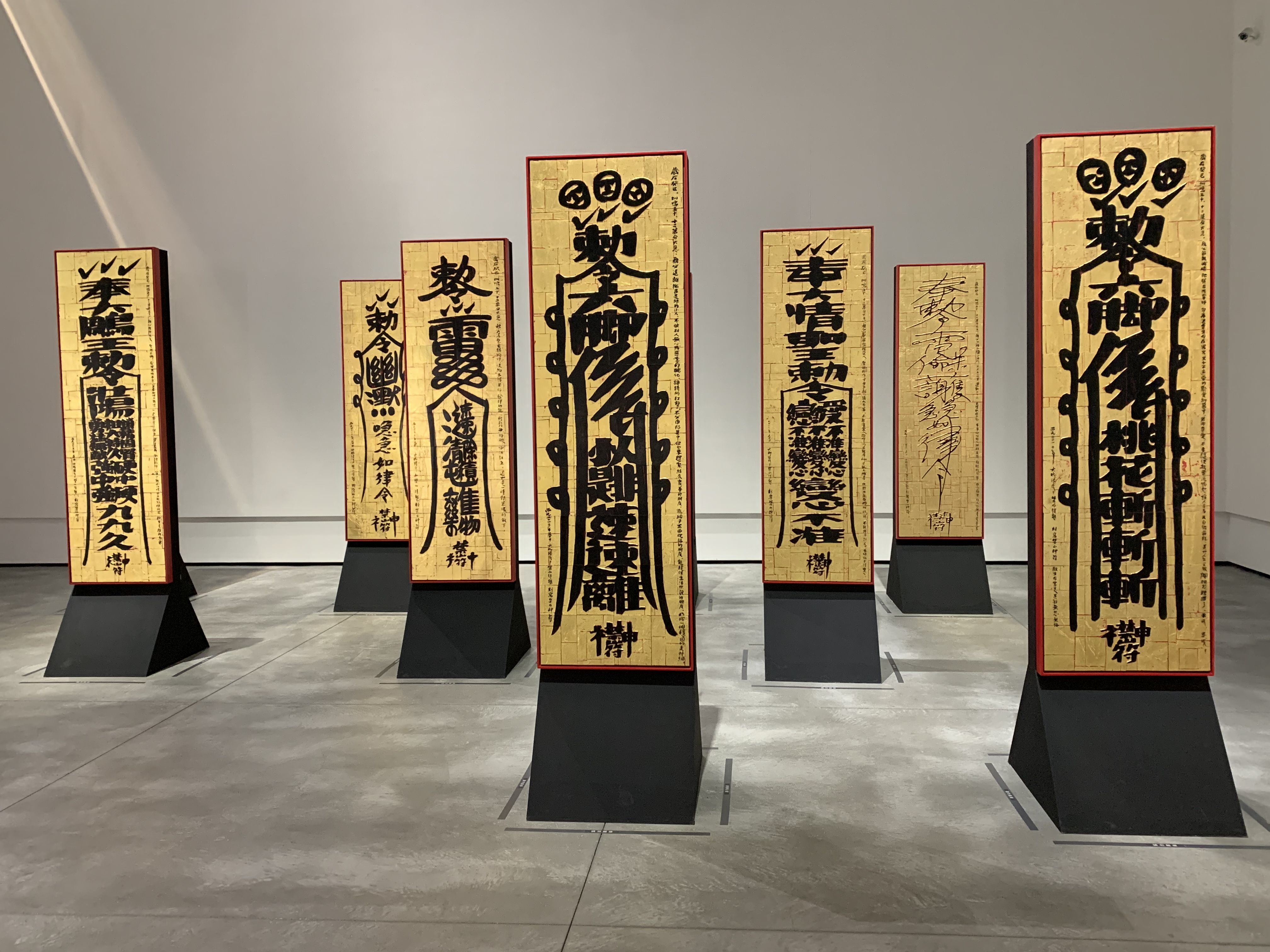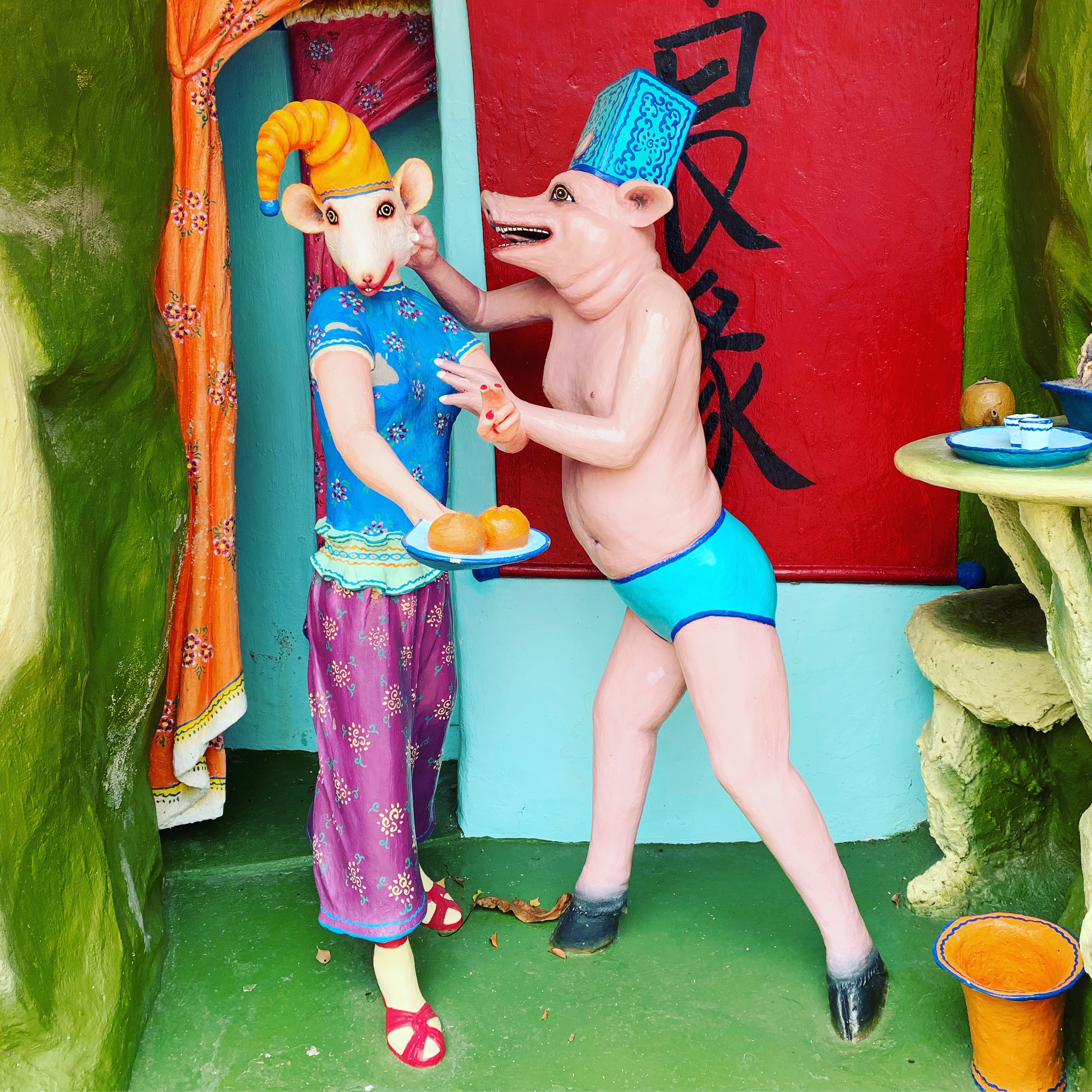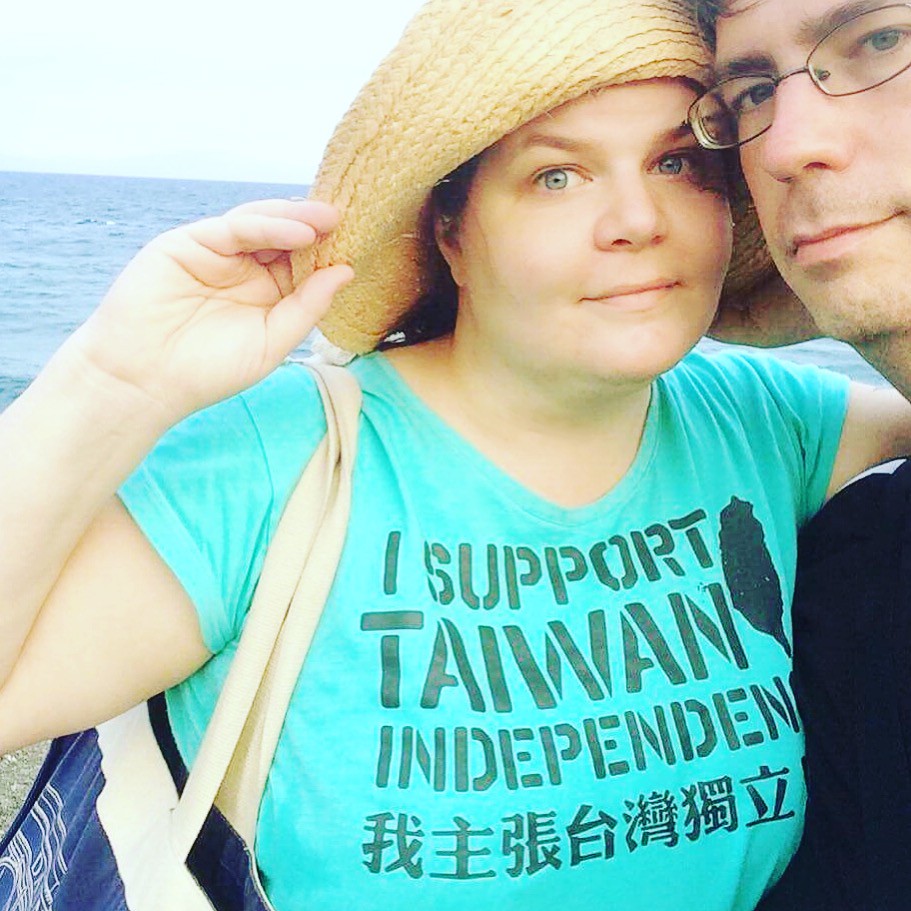
Greetings from the northeasternmost part of the United States! I’ve been aggressively trying not to blog, and surprisingly, recent news regarding Taiwan has made that easy. I have little to say about the Laguna Woods shooting; it’s a pure tragedy and it feels base to analyze it. Regardless, the most important thing to note about it is the violence inherent in a “unificationist” agenda, which has already been covered quite well. COVID? Sick of it.
But there is something I want to address in the wake of Biden’s affirmative words on Taiwan, which is the completely preposterous reaction. To be fair, I can see how any given American voter with no ties to Taiwan and a tenuous grasp on the issue might object.
Certainly, if you see it as yet another military conflict far away that will drain your country’s resources, or are committed to an anti-war stance on principle, you’re likely to oppose such a move. I don’t agree with this stance per se — “They came for [people who are not me] and I said nothing, now who will stand up for me?” — but I understand it.
There’s been another reactionary wave, however, which is as predictable as it is disappointing: accusing the US of provoking China, rather than naming China as the obvious provocateur.
I’ve seen this from bootlicking genocide denier and tankie clown Caitlin Johnstone, who baldly lied when she called Biden’s words “directly threatening a hot war with China”.
Everyone shit their guts out for weeks when Trump made some asinine tweets about North Korea but Biden repeatedly threatening direct hot war with China while waging a world-threatening proxy war against Russia is just fine normal stuff.
— Caitlin Johnstone ⏳ (@caitoz) May 23, 2022
He was not. He was asked if the US was “willing to get involved military to defend Taiwan if it comes to that”, and he said “yes, that’s the commitment we made”.
That is to say, if China starts a war, if China provokes a conflict, if China threatens Taiwan, then the US would be “willing” to get involved, “if it comes to that”, which sounds like strong language but really just means they’re not ruling out a possible defense of Taiwan if China provokes them.
You may not agree with that stance, but it doesn’t matter. It’s not a provocation. It’s fleshing out a potential reaction to a provocation by China. He strengthened that stance with a recent speech at the Naval Academy, but again, did not actively commit the US to a war in defense of Taiwan.
But Johnstone is a Grade A Useful Idiot, and her opinions do not matter. Far more disappointing are the reactions of people who are not only more relevant, but who honestly should know better.
For instance, longtime Taiwan expert Bonnie Glaser had this to say:
“We could actually provoke a Chinese strike against Taiwan…rather than deterring the attack, which is, of course, what President Biden hopes to do.”
She also said that “it might well provoke the attack that we are trying to deter because Xi Jinping could conclude that China should act while it still has a conventional advantage. He might feel pushed into a corner by a U.S. direct challenge to Beijing’s claim to sovereignty over Taiwan.”
I normally hold anything Glaser has to say in high esteem, enough to generally give her the benefit of the doubt, understanding that she wants the best for Taiwan as we all do. Keeping in mind that, if anything, I’m biased in Glaser’s favor, her words above are a pile of absolute horseshit.
Yes, it sucks saying that about someone I generally respect.
First, while it’s true that the web of agreements, acts, assurances and communiques that makes up the United States’ deliberately ambiguous commitments toward Taiwan do not directly obligate the US to defend Taiwan in the wake of a Chinese attack, that’s not quite what Biden said, is it?
The Taiwan Relations Act gives the United States the policy go-ahead to consider a strong defense of an invaded Taiwan — “to maintain the capacity of the United States to resist any resort to force or other forms of coercion that would jeopardize the security, or the social or economic system, of the people on Taiwan.”
That means we’re not specifically obligated to defend Taiwan, but we have the policy-backed ability to be willing to do so, if it comes to that. That’s what Biden was asked, and that’s what he said we committed to. A willingness, a possibility, a potentiality. That’s hardly a rock-hard promise of defense at all costs. It certainly is not, as Johnstone fibs, a direct threat of hot war. Perhaps the language was a bit stronger than expected, but it was not out of line.
Secondly, again, the US is not the provocateur here. I can imagine scenarios in which US meddling might cause Country A to declare war on Country B, but whether you consider past conflicts to fit that mold or not, it’s simply not the case regarding China’s threats against Taiwan.
I don’t know how much clearer this can be: China is the one threatening a war. China is the one bullying Taiwan. China is the one intentionally buzzing Taiwan’s ADIZ and attempting economic coercion and electoral chicanery. China is the one who wants to start that war. If a war broke out, China would be the one declaring it. That makes China the government doing the “provoking”, period.
Even if you think Biden’s words were “provocative” (they weren’t), China is hardly the victim in this story. We can all sympathize with the kid who gets teased one too many times and finally throws a punch, but China’s the one threatening Taiwan. The US is a bystander telling them to stop, not taunting them into beating up Taiwan.
Let’s go deeper: even if you think China is some sort of victim of a big mean United States here, we expect more than playground reactions from world leaders. Xi Jinping isn’t some kid in junior high, despite often acting like it. You don’t react to the president of a foreign country saying they object to your expansionist, subjugationist national agenda by attacking another country. You shouldn’t attack another country at all unless they’re attacking you, or you’re aiding an ally. For any reason. Even if you think it’s “your” territory.
That’s something a bad government chooses to do, not something they are “provoked” into doing. If they don't want to be the villain, all they have to do is not attack. To say otherwise is, again, horseshit.
It’s dangerous horseshit, too: what exactly is Biden supposed to say? Are we supposed to hem and haw and mince our words to appease dictators who have their hearts set on mass murder? Are we supposed to point fingers at ourselves and say we’re the bad guys, when the CCP is the one escalating tensions and acting provocatively?
Do those who agree with Glaser and (ugh) Johnstone think the US should continue to be wishy-washy about Taiwan? How has that done anything but cause China to ramp up their bullying and increase their military expenditure with an eye toward Taiwan’s future subjugation? Are we supposed to pretend that “not directly challenging” Beijing’s claim will cause them not to act on that claim, when they seem to grow more belligerent, not less, about acting?
Perhaps that’s it. Perhaps they believe that the CCP, less worried about the US’s reaction, will believe it can bide its time? If that’s the case, however, you’re just making the same mistake we’ve made for decades: handing China time to prepare for an invasion that they will absolutely undertake when they think they can win. You’re not deterring them, you’re giving them rope. Because again, they haven’t toned down the subjugationist tirades; they’ve ramped them up.
Glaser said one more thing that pissed me off:
Bonnie Glaser, director of the Asia Program at the German Marshall Fund, said Taiwan’s government “focuses on the president’s declaration that he will defend Taiwan” [ed: he didn’t say that] “which they welcome because it provides reassurance to their public and boosts support for the ruling party. They ignore the rest.”
No, it does not merely boost support for the ruling party. It is the general consensus of the people of Taiwan that they do not wish to be annexed by China. Yes, there is a wide range of opinions and not all agree; that’s what it means to have a free society. But generally, it’s the most common belief and that’s not likely to change. In that way I suppose it provides reassurance, but that’s not just a political tool of the DPP — it’s the will of most Taiwanese.
As for “they ignore the rest” — the rest of what? That it could make China angry? Again, at what point does the assurance that 24 million or so Taiwanese will not be abandoned to a genocidal horror show of a government trump the desire to lick boots for a “peace” we cannot guarantee, because we wouldn’t be the ones starting the war?
Let me be clear: even the best people can spout horseshit. This doesn't mean Glaser is a bad analyst or bad at her job. But on this point, she is wrong.
At what point do we realize that it’s China’s decision whether or not to invade, and regardless of what the US says, they could always choose not to start one? Are Taiwanese supposed to feel more reassured by the same old mealy-mouthed prevarication that has, for decades, emboldened China?
We know that the CCP is not above genocide and horrific political repression. They’ve proven that in East Turkestan and Hong Kong. We know that supporters of China’s plans for Taiwan are quite happy to “take the island, not the people” — a euphemism for the mass murder of anyone who resists Chinese rule. That is, most Taiwanese, as most do not consider themselves Chinese and do not want their country to be a part of China. We know those people are willing to act violently, frequently posting sick fantasies of outright massacre of Taiwanese.
Are we supposed to continue to give the bully more room to operate by refusing to say that we might step in if their harassment of Taiwan goes too far? Are we really so scared of Xi Jinping that our leaders cannot say one true thing: that China’s threats are unacceptable? Are we so beholden to cowardice that we truly cannot even speak, and any time we do it’s a “provocation”?
I genuinely struggle to understand how China always gets off so easy. Any other country treating Taiwan the way China does would be called what it is: a bad actor provoking tensions and threatening to start a war. We were the bad guys for invading Iraq. Russia is the bad guy for invading Ukraine. Hitler was the bad guy for invading everybody. European countries are the bad guys for their colonial histories.
And yet China is somehow a poor widdle baby victim who gets “provoked” by the Big Bad United States, even though they’re the ones invading Taiwan? How does that even work? Why do the normal rules for who provokes whom not apply?
I'm not the only one who thinks so, either:
Why is it acceptable in US Taiwan policy discourse for there to be such a thing as "provoking China." How did the CCP hypnotize experts with advanced degrees and decades of experience to plainly stipulate that China's actions aren't accountable to normal geopolitical physics?
— Pacific Standard 🚜🌻 (@PacStandardTW) May 25, 2022
It happens a lot, too. China commits a genocide, but the rest of the world are somehow stoking tensions for wanting to respond. Taiwan has an ADIZ and treats it like any other country who has one (including China!), but its very existence provokes China. China regularly issues bone-chilling threats regarding its intentions toward Taiwan, and yet we're all the bad guys for countering them because talking back “raises tensions?
It's all such fucking horseshit, and I am sad to see douchelord tankies and respected intellectuals alike fall for it, and even repeat it.
It is not a provocation to say that China’s constant bullying of Taiwan is unacceptable, and if it ends in China starting a war, the US might be willing to step in, or to point out that we do have the policy go-ahead to do so if we choose. The bullying, by China, is the provocation.
Again, the US is not the source of provocations here. China is.






